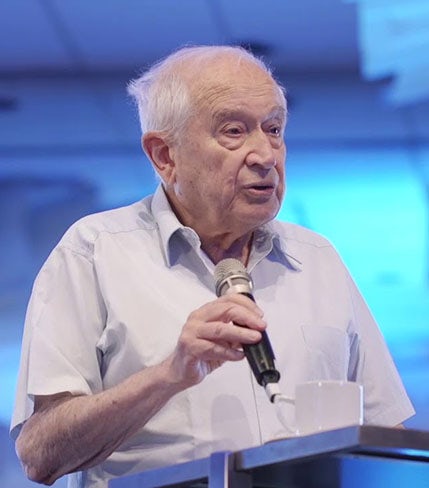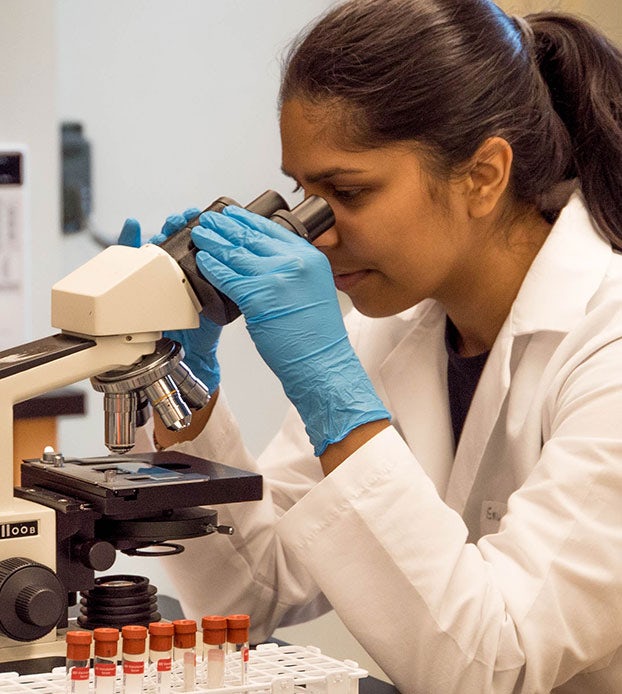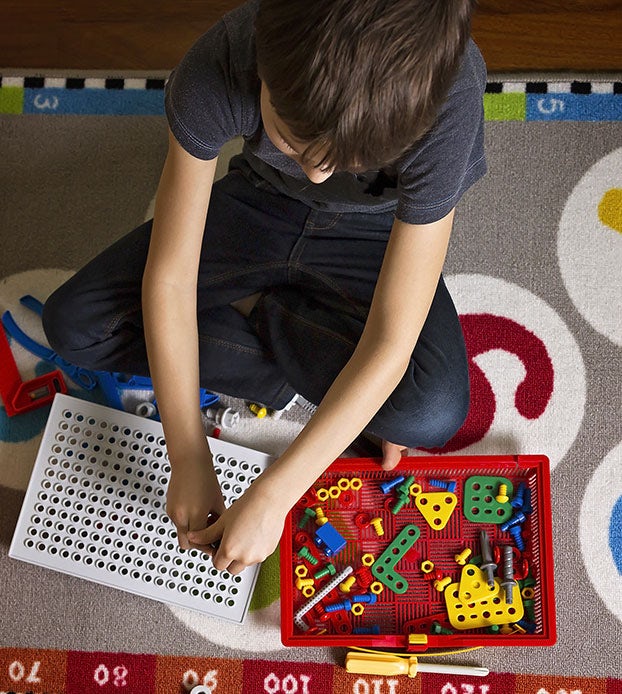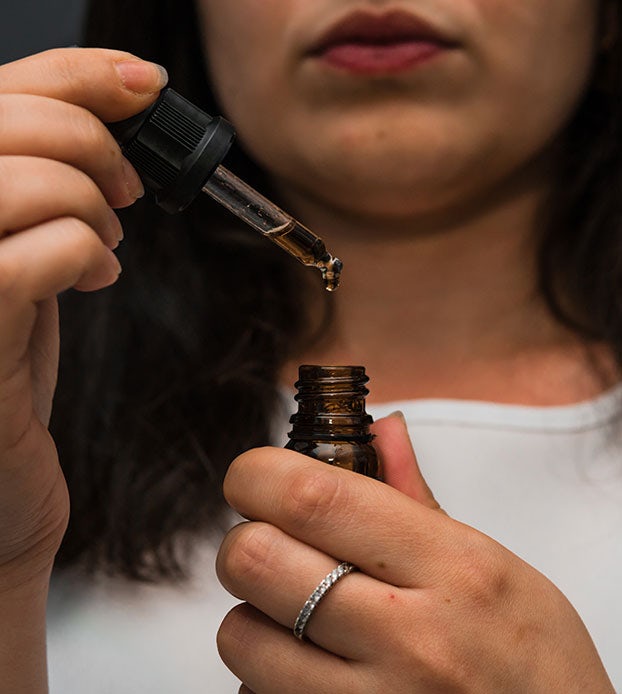This article was first published on Analytical Cannabis. It appears here with permission.
Certain sleep patterns in teens are associated with increased odds of cannabis use and binge drinking behavior the following year, claims new research from the University of Pittsburgh School of Medicine.
Preference for sleeping late at night was associated with a greater likelihood of cannabis use the following year. However, a late-night sleep preference, greater daytime sleepiness, later sleep timing on the weekend, and shorter sleep durations all predicted an increased risk for binge drinking.
➤ Learn exactly how cannabis affects sleep
The study, available as an abstract in an online supplement of the journal Sleep, was due to be presented on Friday, June 11, at the annual meeting of the Associated Professional Sleep Societies, Virtual SLEEP 2021.
Sleeping patterns a predictor for future cannabis and alcohol use
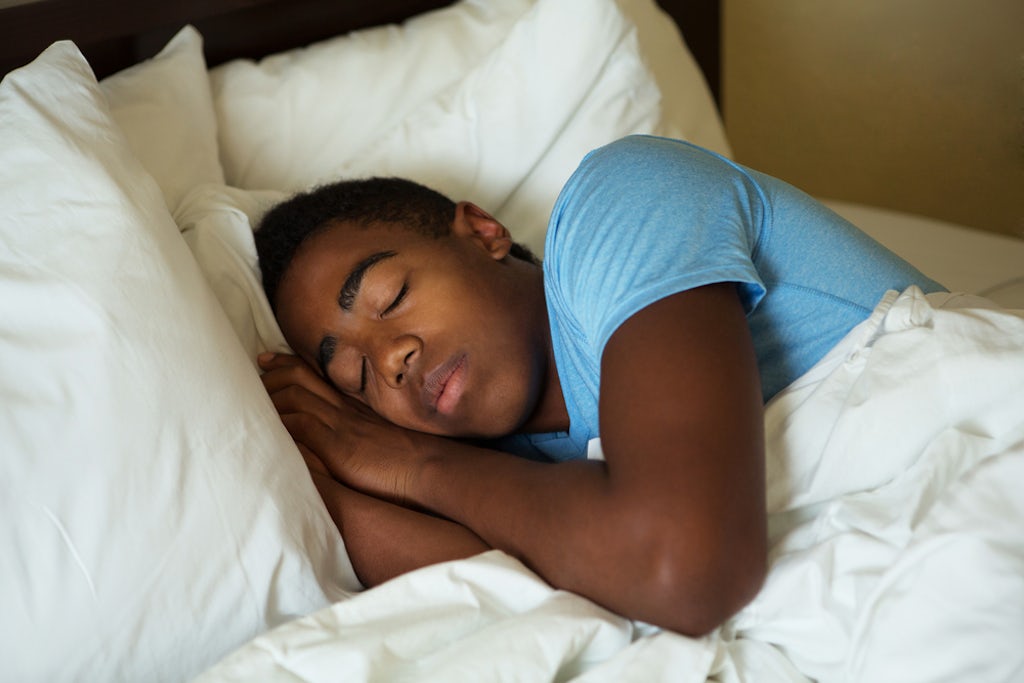
While previous studies have suggested links between sleep characteristics and substance use, the authors of the new study say that these studies have generally been limited by studying only a limited range of sleep characteristics, a narrow age span, and including relatively few follow-up assessments.
To address these limitations, the new work used data from 831 students (aged 12-21 years at baseline) gathered as part of the National Consortium on Alcohol and Neurodevelopment in Adolescence (NCANDA) study. The NCANDA featured an accelerated longitudinal design, which allowed the Pittsburgh researchers to examine whether multiple sleep characteristics in any year might predict substance use the following year.
Sleep variables included in the data included the previous year’s circadian preference, sleep quality, daytime sleepiness, the timing of midsleep (weekday and weekend), and sleep duration (weekday and weekend). These data were analyzed in a model using age, sex, race, parental education, the previous year’s substance use as covariates.
The researchers found that a preference for sleeping later at night and a shorter weekday sleep duration were associated with increased odds for additional days of cannabis use the following year. Sleeping later at night and a later weekend midsleep predicted a greater likelihood of any cannabis use the following year.
School-age teens more vulnerable to sleep-related factors
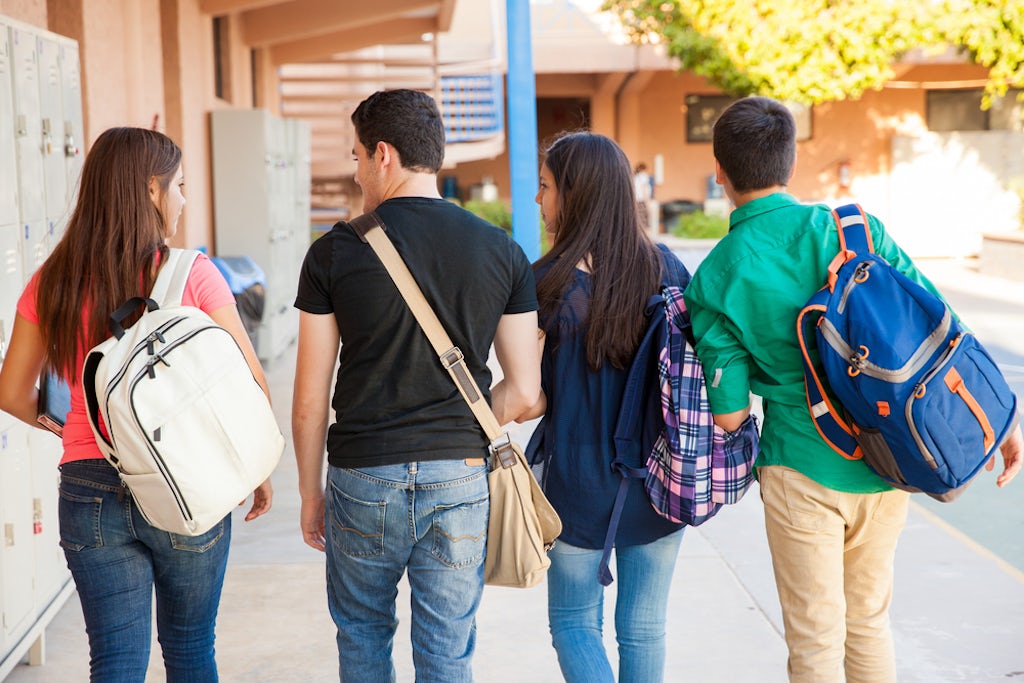
The researchers carried out further analysis on these data, stratifying the sample into two groups: middle school and high school students (aged 12-18) and college-age students (aged 18-27).
From this, the researchers observed that sleep variables appeared to only predict cannabis use in the middle school and high school demographic. In terms of alcohol use, it was also seen that different sleep characteristics predicted binge drinking within each demographic.
“Overall, the results suggest that teens in middle and high school may be more vulnerable to sleep-related risk for substance use,” said lead author Brant Hasler, PhD, in a statement. Dr Hasler is an associate professor of psychiatry, psychology, and clinical and translational science in the Center for Sleep and Circadian Science at the University of Pittsburgh.
“The particular pattern of sleep predictors in the middle school and high school sample is consistent with the ‘circadian misalignment’ caused by early school start times,” Hasler added.
According to data from the US Department of Health and Human Services, only around 25 percent of students in grades 9 through 12 get a healthy amount of sleep on school nights. This is thought to be at least in part due to the early start times of many schools. A 2015 analysis of US Department of Education data from 42 states found that “most” (defined as 75-100%) of public middle and high schools in the US start before 8:30 am. The American Academy of Pediatrics recommends that schools start no earlier than 8:30am in order to benefit the sleep quality of students and thus improve students’ mental and physical health, as well potential academic achievement.
“Sleep is modifiable behavior, and perhaps easier to modify than going after substance use directly,” said Hasler. “Furthermore, other studies show college-age teens are more willing to hear about changing their sleep than changing their substance use. Thus, focusing on improving teen sleep — including through delaying school start times — may be an underutilized but effective approach to reducing risk for problematic substance use.”
Using cannabis to improve sleep in adults
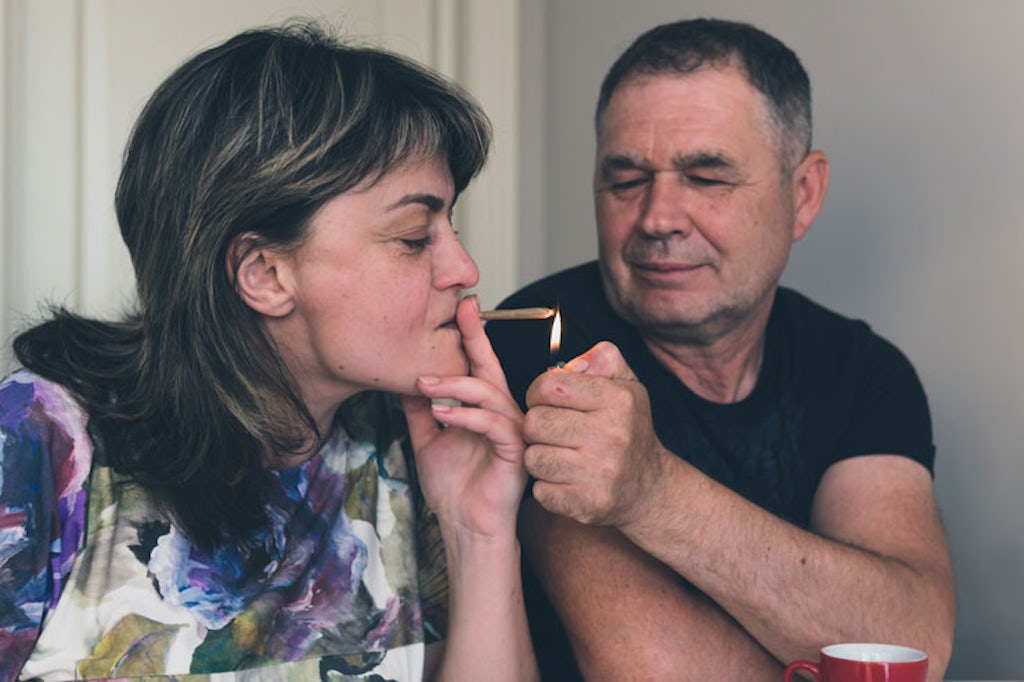
This association between abnormal sleep and cannabis use is not just one way; there is also a wealth of cannabis research investigating the effect of cannabis and its constituent cannabinoids on improving poor sleep in adults.
Anecdotally, cannabis and CBD products are well-regarded for their relaxing properties. But it is still up for debate whether this effect extends to providing meaningful improvements in sleep quality. Cannabis products have been shown to reduce PTSD-related nightmares and increase the length of time spent in stage four deep sleep. However, wider reviews of preliminary research into cannabis and sleep have highlighted potential problems with THC impairing sleep following long-term use. One recent 2019 study of chronic pain patients dealing with insomnia also observed the potential build-up of tolerance to cannabis’ sleep-promoting effects over time.
Earlier this year, researchers from the Dana-Farber Cancer Institute conducted a series of semi-structured interviews with cancer patients who use cannabis medicinally to cope with sleep problems. They found that the majority reported great benefits from their cannabis use, with no patients reporting undesirable side effects. The patients most frequently endorsed cannabis use for resolving their difficulties with insomnia and staying asleep through the night.
“Poor sleep is common among cancer patients. Some are choosing medical cannabis to treat their poor sleep and it appears that this has beneficial effects for their ability to fall asleep and to stay asleep,” lead author Eric Zhou, an assistant professor at Harvard Medical School and a staff psychologist at the Dana-Farber Cancer Institute, recently told Analytical Cannabis.
Sleeping problems are incredibly common in cancer patients undergoing treatment and they can continue even when the cancer is in remission. A cancer diagnosis is considered a qualifying condition for medical cannabis in almost all states with a medical cannabis program, and as a result the drug is being increasingly used by cancer patients looking to manage the side effects of their treatment, without the added complication of prescription sleep aids. In states with a recreational cannabis market, patients may also see cannabis as more accessible than a prescription sleep medication.
“It is likely that oncology clinicians are currently treating patients who are consumers of medical cannabis, though it may not be something that they have discussed during their appointments,” Zhou said.
“Clinicians are encouraged to learn more about the benefits and drawbacks of using medical cannabis to manage symptoms commonly associated with cancer treatment, and to encourage an open environment so that patients feel comfortable discussing any possible use of medical cannabis.”
Sign up for bi-weekly updates, packed full of cannabis education, recipes, and tips. Your inbox will love it.

 Shop
Shop Support
Support
